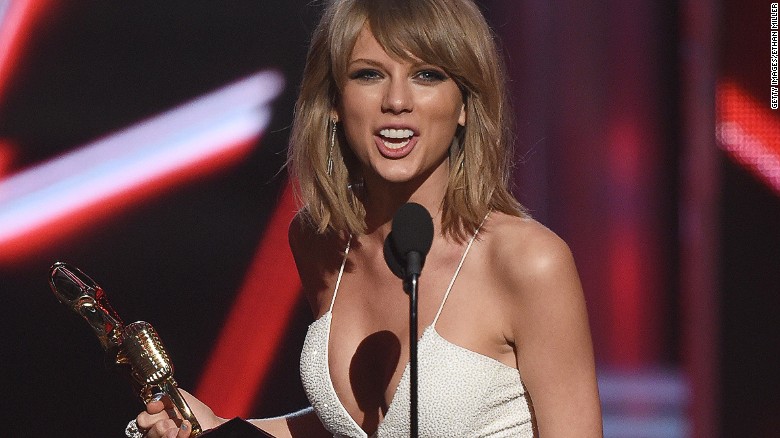
While many fans are talking about the steamy chemistry between Taylor Swift and Scott Eastwood in her new music video, the singer is taking heat for an altogether different reason.
Swift is accused of channeling colonialism in the video for her single “Wildest Dreams.” In it, she portrays an actress shooting a film with the handsome Eastwood (Clint’s son) in Africa. There’s plenty of wildlife and passionate kisses set against a stunning landscape, but it’s what’s missing that has some folks buzzing.
“The singer debuted her vid for ‘Wildest Dreams’ at the VMAs Sunday night, and even the most casual observer would have noticed that — for a clip that’s set in Africa — it’s about as white as a Sunday morning farmer’s market,” Nico Lang writes for The Daily Dot. “The video wants to have its old-school Hollywood romance but ends up eating some old-school Hollywood racism, too.”
Lauren Duca of the Huffington Post writes that the video “sure felt a lot like some harkening back to white colonialism.”
Swift is also being taken to task on social media.
But the video’s director, Joseph Kahn, says the clip is not about colonialism but a love story on the set of a film being shot in Africa, circa 1950. He says it was inspired by such classic movie romances as “The African Queen” and “Out of Africa.”
“There are black Africans in the video in a number of shots, but I rarely cut to crew faces outside of the director as the vast majority of screentime is Taylor and Scott,” he said in a prepared statement.
“The reality is not only were there people of color in the video, but the key creatives who worked on this video are people of color. I am Asian American, the producer Jil Hardin is an African American woman, and the editor Chancler Haynes is an African American man,” he added.
“We collectively decided it would have been historicially inaccurate to load the crew with more black actors as the video would have been accused of rewriting history. This video is set in the past by a crew set in the present and we are all proud of our work.
“There is no political agenda in the video. Our only goal was to tell a tragic love story in classic Hollywood iconography.”
It’s not the first time Swift has been called out regarding racial politics.
In 2014, rapper Earl Sweatshirt accused the singer of “perpetuating black stereotypes” in her “Shake It Off” music video (though he admitted that he had not actually watched said video).
In July, Swift was accused of exhibiting white privilege when she assumed that tweets from Nicki Minaj regarding being shut out of an MTV Video Music Awards category were about her. Minaj explained that she was trying to make a deeper point, including that “Black women influence pop culture so much but are rarely rewarded for it.”
“When female solidarity shuts down someone’s honest expression of frustration at society, inequality, and racial and body-type bias, that’s hardly progressive,” Spencer Kornhaber wrote for The Atlantic.
Proceeds from “Wildest Dreams” will go to funding wildlife conservation efforts through the African Parks Foundation of America.
As reported by CNN
